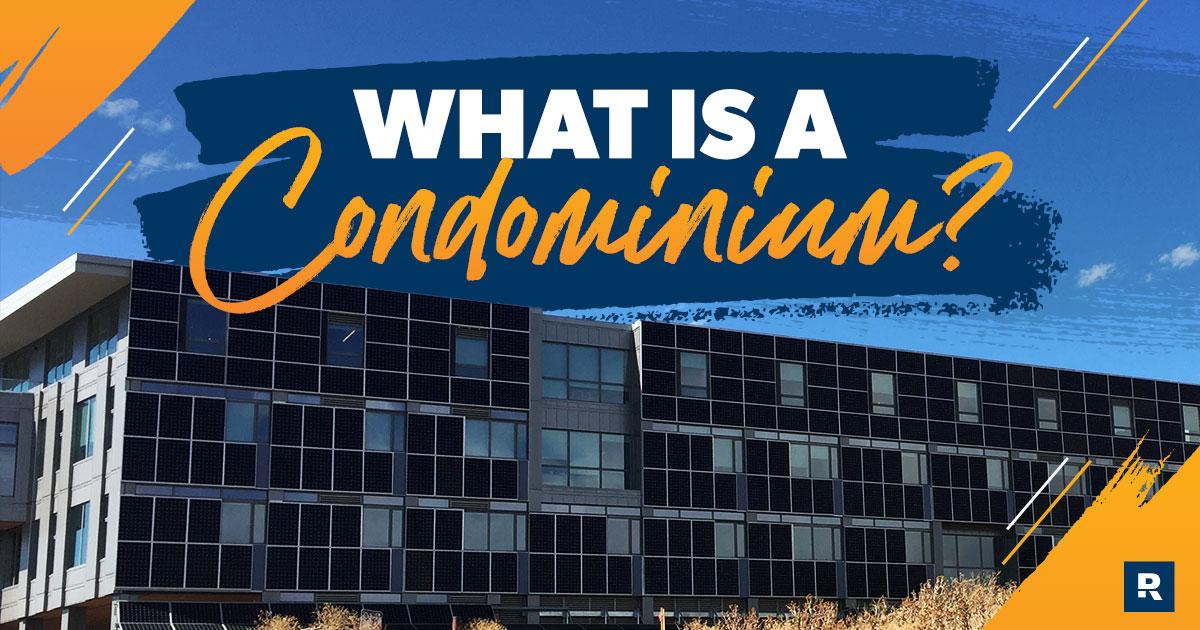
So you’re thinking about buying a house and seeing lots of listings online for condos in your area. And you may be wondering if a condo would be a good fit at an affordable price, especially for newlyweds or empty nesters. Or maybe you’re thinking about a second home in a vacation hot spot. But first, what exactly is a condo? And how does it differ from a townhouse or apartment?
Great questions.
A condo, short for condominium if you weren’t sure, is basically an apartment you actually own. It’s in a building or a complex of buildings, and it’s generally much smaller in square-footage than a single-family home. That’s it in a nutshell.
They’re also typically much less expensive than a single-family, detached house, which makes them appealing to those looking for low-maintenance, affordable housing in urban areas. The square-footage is usually much smaller than in a free-standing house or even a townhome.
For the geeks among us, condos became popular in the early 1960s with the passage of the Housing Act of 1961, which allowed the Federal Housing Administration to back mortgages on condos for the first time. Flush with that sweet federal cash, people started buying them in huge numbers.
How is it different from an apartment?
As mentioned earlier, the main difference is that condos are owned by private individuals who pay a mortgage on them (or own them outright). In an apartment, all of the units are usually owned by a single person or company who rents out the units. Whoever owns the building or complex owns all of the common spaces, too.
With a condo, a homeowners association (HOA) or condo board elected by all of the owners manages all of the common spaces. Fees or dues are paid for things like landscaping, pool cleaning and maintaining the parking lot. Occasionally, if a big expense comes up—like a broken roof or busted sewer pipe—the board or association will call for a special “assessment” that may cause an increase in dues or a one-time payment to fix it.
What are the benefits of condo ownership?
Well, there are lots of reasons someone might want to buy a condo instead of, say, a single-family home in the suburbs. Some of those reasons may include:
-
Downsizing: As you get older, you may find you need less space. So a condo is a great way to downsize. Also, you don’t have to worry about mowing lawns or keeping up maintenance of the exterior of your home. Goodbye, lawnmower!
-
Less expensive: Condos can cost a lot less than a big single-family home on a huge lot. It may be appealing for a first-time homebuyer, especially if you’re single or just married and aren’t planning to have kids for a while.
-
Great investment: Condos are also popular with investors. And because maintenance is handled by the HOA, you won’t have to hire landscapers or rely on your tenants to keep the grass cut or take out the trash.
-
Second home: Do you take a vacation every summer to the same beach town? If you have the cash to consider buying a second home or a vacation home, a condo in that area could be great option.
-
Built-in community: Some people just don’t like to live alone, and condominiums can offer lots of opportunities to foster community. Some offer companionship to residents in a similar stage of life (like retirees or singles) and events where you get to know your neighbors. You’ll also have a lot of interaction with your HOA.
If this sounds good to you and you think you might like to buy a condo, check out our Home Buyer’s Guide.
With the right agent, taking on the housing market can be easy.
Buy or sell your home with an agent the Ramsey team trusts.
What are the downsides to owning a condo?
Now, before you start thinking it’s all rainbows and sunshine, there are some potential drawbacks to owning a condo. Here are some of them:
-
Rules: Condos can have strict rules about what you can and can’t do to the exterior of your property. Some complexes have detailed contracts and covenants that tell you that your drapes must be the perfect shade of off-white, you better never put wind chimes on your patio, and do not let anyone catch you putting a wreath on your door at Christmas.
-
Poorly run or expensive HOA: While a well-run HOA can make your life easy, a poorly run HOA can really be a thorn in your side. And you’ll be paying a price—sometimes a steep price—either way because rates on HOAs can and probably will go up. Be sure you check into the specifics beforehand, know exactly how the condo is being managed and learn about the average rate increases.
-
There’s always that one person everybody hates: Every (and we do mean every) HOA seems to attract at least one person who makes it his or her job to be the “Barney Fife” of the neighborhood. They’re a total pain in the neck, and they’ll corner you by the mailbox or in the elevator and give you an earful about how your curtains are oatmeal-colored when the covenant clearly states they must be ivory. And, oh, by the way: You’re allowed to have hedgehog aloe in pots on your porch, but spiral aloe is never allowed. You may always find yourself wearing headphones and sunglasses just to avoid speaking to this person.
Okay, so maybe we’re being a tad dramatic. But keep in mind that while you’ll have a lot of opportunities to get to know your neighbors, your neighbors may not be people you want to know. And, unlike in a detached house, you can’t just put up a fence or plant a hedge to hide behind. You’re sharing a wall with them.
Bottom line: Do your research. Look at the exteriors of the units. Carefully read the contracts and covenants of the HOA and make sure you can live with all the rules.
Are there any hidden or extra costs to owning a condo?
We’re sorry to break it to you, but there are. The homeowners association is not free. You’ll pay a monthly or quarterly fee associated with that, and you can usually expect the HOA to increase dues each year with the cost of inflation.
Find expert agents to help you buy your home.
And while this fee might cover normal maintenance like pool cleaning, landscaping and pest control in the common areas, there may be regular, um, “assessments” to make sure there aren’t any big problems that need to be addressed—like roof repairs, resurfacing the parking lot and things like that.
You can save a lot of money if the condo has fewer amenities. If you don’t care about pools or tennis courts, choose a community without those things. You’ll save a lot of money by not paying for things you don’t care about.
And while property taxes for a condo are typically lower than for a stand-alone house or even a townhouse (both of which include the land they sit on), a condo has much smaller square-footage to consider. The tax for the land and common areas is split among the other owners and may be included in your HOA fees.
If you aren’t paying cash for the condo, get a fixed-rate mortgage for 15 years or less. Be sure to keep your monthly payments under 25% of your monthly income. And talk to our friends at Churchill Mortgage. These experienced loan experts can show you the true cost and savings of each loan option and help you finance your purchase the smart way.
Listen to what Dave says about condos here.
Are you ready to buy a condo?
So, are you ready to make the move to a condo? Talk with an expert first. We know some excellent ones—our real estate Endorsed Local Providers (ELPs)! They’re rock stars who will put you first and help you weigh the pros and cons of condo ownership.


